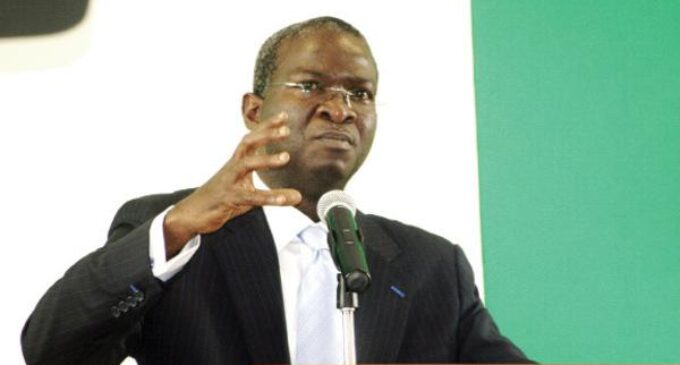Declaration of eligible customer: A strategic step to improving efficiency, competition and the economy

The declaration of the Eligible Customers in the Nigerian Electricity Market by the Minister of Power, Works and Housing, Raji Fashola (SAN), pursuant to section 27 of the Electricity Power Sector Reform Act 2005 on the 19th May, 2017 has been a trending news for the right and wrong reasons. Nigerians are itching to know what this seemingly new discourse is all about and how its implementation will impact the conundrum the power sector is faced with. The declaration came after government’s assessment of the market status and as an answer to the clarion call through pressures from consumers due to the inability of the Distribution Companies (DisCos) to fulfil their obligations and the need to promote retail competition in the market.
With stranded generation capacity in the electricity market and poor market liquidity, declaration of eligible customer is the brilliant way to liberate the electricity sector from the current monopoly by some under-performing companies. This policy directive will lead to increased energy generated/available and expanded generation capacity as GENCOs would potentially ramp up their generation capacities to provide supply to eligible customers, addressing issues bothering on financial viability of the electricity supply value chain, the main and immediate issue confronting Nigerians from enjoying the benefits of the Power Sector Reforms.
The declaration of Eligible Customer is in line with the provisions of an Act of Parliament, the Electric Power Sector Reform Act 2005 (EPSR) — the Grundnorm of the Power Sector. Contrary to arguments against the Declaration, the Minister has taken the right step!
The National Electricity Power Policy (NEPP) 2001 and the Electric Power Sector Reform (EPSR) Act 2005 provides for the development of Nigeria electricity market with wholesale competition recommended to assist in monopoly control and cost insensitivity.
The declaration pursuant to Section 24 Subsection 2 and 3 of the Act, does not portend that the market is competitive but rather the declaration is intended to initiate a competitive market as captured by Section 24 Subsection 3 of the Act. This policy directive heralds the initiation of a competitive market as captured by Part II of the Act with the title “Development of a Competitive Electricity Market”.
Subsection 3 states: “The Minister shall present to the President and the National Council on Privatisation and National Assembly, each report submitted by the Commission under subsection (2) of this section and when the Minister, in consultation with the President and the National Council on Privatisation is satisfied that the electricity market in Nigeria has developed to the point where a more competitive market ought to be established pursuant to section 26 of this Act, having regard to the criteria described in subsections (a), (b), and (c) of subsection (2) of this section, and the Minister shall issue a declaration that a more competitive electricity market is to be initiated”.
It is important to clarify that Section 26 (1) of the Power Act 2005 did not imply that competition should be fully in place before the declaration. Instead it states that the declaration initiates, commences, heralds, starts, begins, originates, inaugurates, and launches etc the process of market competition.
Section 24, Sub-section 2 of the ESPRA made provision for the pre-requisites for the readiness of the Nigeria Electricity Supply Industry for a more competitive market. These pre-conditions for the initiation of a competitive market are:-
- The degree of privatisation that has occurred,
- The existence of sufficiently large number of potential competitive entities,
- The existence of other pre-conditions, including necessary metering and information technology infrastructure, required for the operation of a more competitive electricity market.
In adherence to the provisions of the Act, the end of the monopoly of NEPA (Nigeria Electricity Power Authority) has been facilitated and the framework and guidelines for NEPA’s privatization through the eventual formation of companies to take over the functions, assets, liabilities and staff in a bid to make the electricity market more competitive with seven generation companies (GenCos), one transmission company (TransysCo) and eleven distribution companies (DisCos)—an arrangement expected to encourage private sector investment particularly in generation and distribution.
It is imperative to state here that following the privatisation and handing over of the distribution and generation assets, on the 1st of November, 2013, peak demand load forecast which stood at 12,800MW of power with available generation capacity of 5,000MW and an average daily generation of 3,500MW – 4,000MW moved to a current demand forecast of 17,720MW with available generation of 8,000MW, with still an average daily generation of 3,500MW—4,000MW.
This figure proves that there is a huge gap in delivering generation capacity and also a bigger gap in meeting grid connected as well as suppressed load three years after privatization. The implication is that transmission and distribution infrastructures are yet to be put in place to take stranded generation capacity from the generation companies who are willing to sell power to suppressed load centres desperately in need and willing to buy power.
Over three years after privatization, the 11 Distribution companies have enjoyed the monopoly of bulk power purchase and are still unable to distribute and account properly for power purchased and distributed, while we have
GenCo stakeholders, who are potentially competitive entities, waiting desperately to sell more power as well as end users willing to buy more power for residential, commercial and industrial use.
The declaration does not in any way spell doom and gloom, GenCos can now sell power to suppressed load centres there by making up dwindling revenue and pay their gas suppliers. Customers now have the permission to cooperate amongst themselves providing the enabling environment and also infrastructure to be classified as “eligible customers”. This means investing in the right infrastructure such as metering, power lines, transformers and electrical switchgears.
The Declaration portends several benefits for the sector as it will also address some of the liquidity and revenue shortfall in the sector as guaranteed cash flow will definitely boost the morale for potential investors in the area of gas field development, power generation capacity and also in the manufacturing industry with assurance of constant power supply to meet production demand.
Eligibility will furthermore introduce competition on the demand side and complete the liberalization of NESI and improve efficiency, bringing about greater pressure for efficiency on the suppliers. In addition the presence of retailers, or the mere possibility of future competition, will force existing distributors to establish appropriate customer services and commercial divisions, promote national economic development through supplying electricity to the productive sector of the economy, thereby supporting economies of scale through bulk purchase of electricity.
Further, there will be reduction of technical and non-technical losses for bulk High Voltage supply in the NESI, reduced financial risk by supplying credit worthy eligible consumers, bring about increased attention to consumers, confers on consumer’s power to choose energy supplier, bring about a more efficient electricity market, stimulate investment in the sector as generators can sign long term contracts.
The declaration will send a powerful signal that the electricity sector is evolving towards full retail competition which will also ensure a reduction of financial risk by supplying credit worthy eligible consumers.
Distribution companies on the other hand can procure additional power as eligible customers. They will be compelled to increase efficiency with sufficient attention to service improvement in the short-term by reducing the major losses incurred by them along the power chain.
Contrary to the assertions peddled around the country, this long awaited move by the government is a welcome development to the ailing power sector, as willing seller and willing buyers of power can now transact bringing about increased efficiency and better competition. The impact will be creation around the clock jobs with enough power made available to eligible customers who are willing to increase production. The direct effect of this will be a working and stabilized economy we all long for.
Although there might be some misconceptions on this long awaited move by the government, the impact of the implementation on the market will quieten the critics. The Government cannot fold its arms while the gains of Power Sector privatization dwindle to zero, benefitting only a few.
Dr. Ogaji is the executive secretary, Association of Power Generation Companies
Views expressed by contributors are strictly personal and not of TheCable.















There are no comments at the moment, do you want to add one?
Write a comment